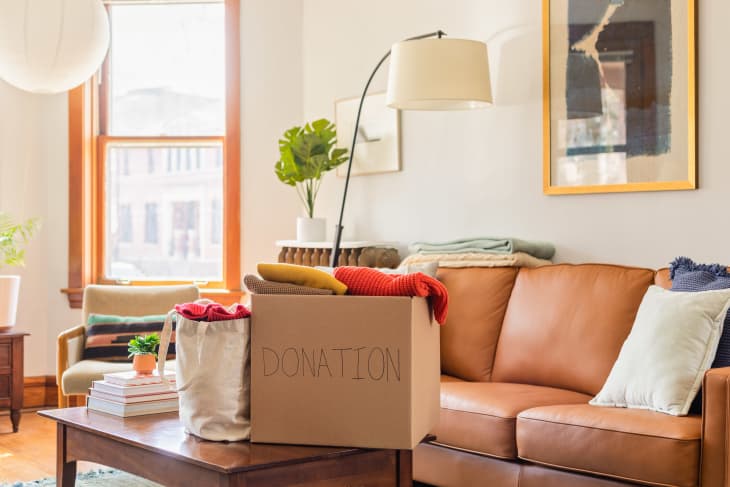6 Common ‘Rules’ That Keep You From Letting Go of Things (and a Few Good Reasons to Break Them)

Decluttering is such an emotional journey that often stalls all your best intentions and efforts to pare down our belongings and simplify your spaces. Even when you’ve experienced the relief and calm that come from a decluttered space, contending with all the guilt and self-questioning that accompanies every decision feels like a pretty big mountain to climb.
Once you’ve tasted the reward that comes from wading through all the emotional quicksand, though, decluttering becomes not only easier, but increasingly enticing. The freedom that comes from releasing stuff is well worth the determination it takes to get there.
Learning how to deal with the emotions that come up is a crucial part of becoming a person who regularly declutters. After doing this many times, I’ve come to enjoy taking every opportunity to make more room in my house and in my life.
Here are some of the most common reasons you might feel pressured to hang on to something — and why I say, just ignore them.
You spent good money on it.
The money is already spent. If you’re looking at something you don’t use, don’t like, or don’t need anymore, and hesitating to get rid of it because you spent money buying it, what you’re really grappling with is the fallacy of sunk cost. (I told you decluttering was a psychological endeavor!)
I love this quote from The Decision Lab on the topic: “The sunk cost fallacy means that we are making decisions that are irrational and lead to suboptimal outcomes. We are focused on our past investments instead of our present and future costs and benefits, meaning that we commit ourselves to decisions that are no longer in our best interests.”
Simply put, there’s no use spending more time and energy cleaning, storing, and feeling bad about not using things you bought but no longer need in your life. That is a suboptimal outcome. Let those things go.
You might need it later on.
This thought can be countered with this question: Do you want your home to be a peaceful sanctuary or a stressful storage unit? Maybe this feels like an exaggeration, but each decision to keep something you might need down the road will quickly add up to a space filled with items that have no place or use in your life right now.
Instead of hanging on to things that you may need later on, remind yourself that you can buy or borrow if you need it again. The price you may pay down the road is dwarfed by the gain of having a cleaned-out space now.
You should keep all your books.
The very mention of getting rid of books is often met with gasps of shock. I get that every book is meaningful somehow, but in my opinion, drowning in books and struggling to find places to store them sucks the joy right out of having them. Rather than keeping every book you’ve ever owned, consider only hanging on to the ones that you feel shaped you in some way and donating the rest. This way, your bookshelves will be a thoughtful display of the good reads that have helped make you into the person you are today (and you’ll have so much less to dust).
You need physical copies of your manuals.
Toss those babies in the recycling bin as soon as you get them. You can find a PDF of every fridge, microwave, or washing machine manual online. Keeping them takes up space unnecessarily, and a lot of it! Don’t forget to go through your files or wherever you’ve stored your manuals and free up your storage space for items you truly do need to keep paper copies of (it’s not much), like personal documentation, titles, or deeds.
It’s mean to get rid of kids’ art.
If you don’t, you will drown in it. In my experience, as a mom of five, keeping too many drawings and art projects buries the pieces that truly deserve to shine. Take pictures of what feels hard to let go of (include your child in the pictures!) and have it printed into a photo book. Only keep originals of a select few special pieces.
You should never get rid of sentimental items.
Getting rid of items that remind you of someone special or that bring back memories of a special time or experience can feel painful, I get it. But letting them go doesn’t necessarily mean saying goodbye to the memory. For items that you don’t enjoy having in your space or that are taking up storage space, consider taking pictures and doing something intentional with them instead. Sentimental items that bring you joy? By all means keep them.
Decluttering isn’t merely or even always about being a minimalist; it’s about putting yourself in charge of what takes up space where you live. Deciding, first, not to let others’ opinions dictate what you should and shouldn’t keep sets you on the road to having only what you need and love in your home. Now, doesn’t that sound lovely?